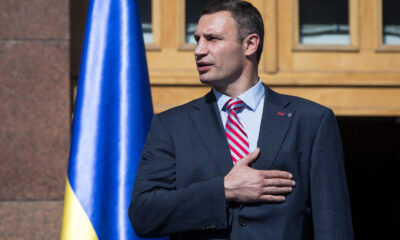FBI Probes Mayor Adams’ Campaign Over Foreign Donations

In a developing story that has sent ripples through the political landscape of New York City, the campaign of Mayor Eric Adams (D) is under intense scrutiny. Early Thursday, federal agents conducted a search at the home of Brianna Suggs, a pivotal fundraiser for Adams. The raid, coinciding with Adams’ short trip to Washington, D.C., signals a deeper look into allegations of illegal foreign donations to his mayoral campaign.
The raid at Suggs’ Brooklyn residence, executed while Adams was en route to the nation’s capital, sought evidence of a scheme involving straw donors purportedly linked to the Turkish government and a local construction company. Such allegations raise serious questions about the integrity of the campaign’s funding and the overarching influence of foreign contributions in local governance.
Despite the dramatic optics of FBI agents confiscating boxes and searching for financial records, neither Suggs nor Adams have been charged with any crime. However, the scope of the investigation, as reported, does encompass a constellation of potential offenses, including wire fraud and conspiracy.
The focus on Suggs, whose professional and personal ties with Adams run deep, spotlights the often-complex web of political consultancy and lobbying. Records indicate that Suggs’ firm, Suggs Solutions LLC, received significant sums from Adams’ campaign. These financial ties, while not inherently incriminating, become focal points for federal inquiries into campaign finance irregularities.
While Adams, addressing the matter, affirmed his commitment to high ethical standards for his campaign, the implication of such an investigation can cast long shadows over his administration. The abrupt cancellation of his meetings in D.C. to address the city’s migrant crisis underscores the gravity he ascribes to the ongoing probe.
The allegations come at a particularly sensitive time as the city, like many across the country, grapples with pressing issues, including the migrant crisis. Adams’ decision to return to New York to “be on the ground” was an instinctual move for a leader under such unexpected pressure. His presence in the city following the raid conveys a message of taking charge during turbulent moments.
This incident has provided fodder for political adversaries, like Curtis Sliwa, to cast aspersions on Adams’ leadership and ethical compass. While Adams has not been shy about his confidence in his campaign’s conduct, the intensity of the federal action — a raid rather than a subpoena — suggests a significant level of concern on the part of investigators.
The unfolding situation serves as a reminder of the ever-present scrutiny of political figures and their financial backers. It is a testament to the complex interplay between campaign finance laws and political activities. The conservative point of view often emphasizes the need for transparency and strict adherence to legal and ethical standards in campaign finance. As such, the allegations against Adams’ campaign, if proven true, would affirm calls for more rigorous oversight and accountability in political fundraising.
As the investigation unfolds, it is essential to consider the implications for governance in New York City. The specter of corruption, real or perceived, can hinder the implementation of policies and erode public trust. The full cooperation of Adams’ campaign with the investigation is not just a legal necessity but a step toward maintaining that trust.
For New York’s electorate, this is a moment for vigilance and patience as the investigation proceeds. It is a chance to reaffirm their commitment to democratic principles, including the fair and legal financing of political campaigns. The outcome of this investigation may set a precedent for the future of campaign financing and the ethical lines that must not be crossed in pursuit of public office.
























